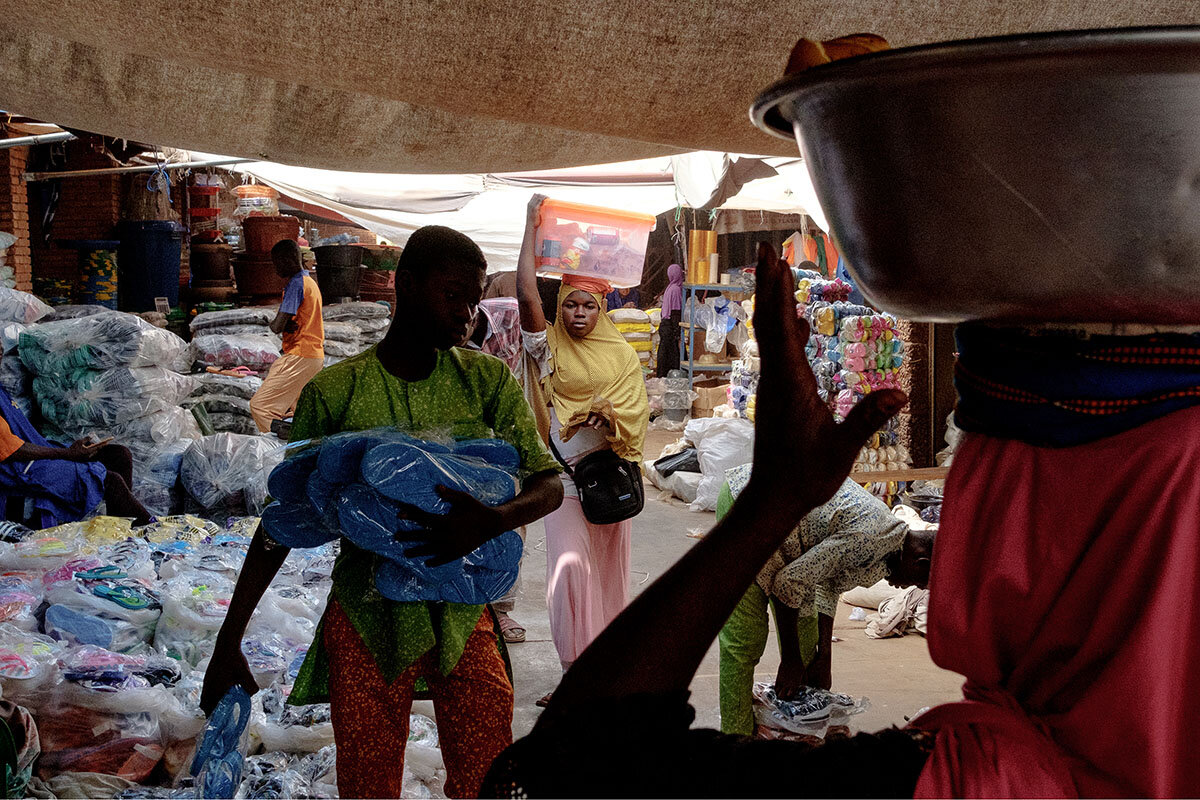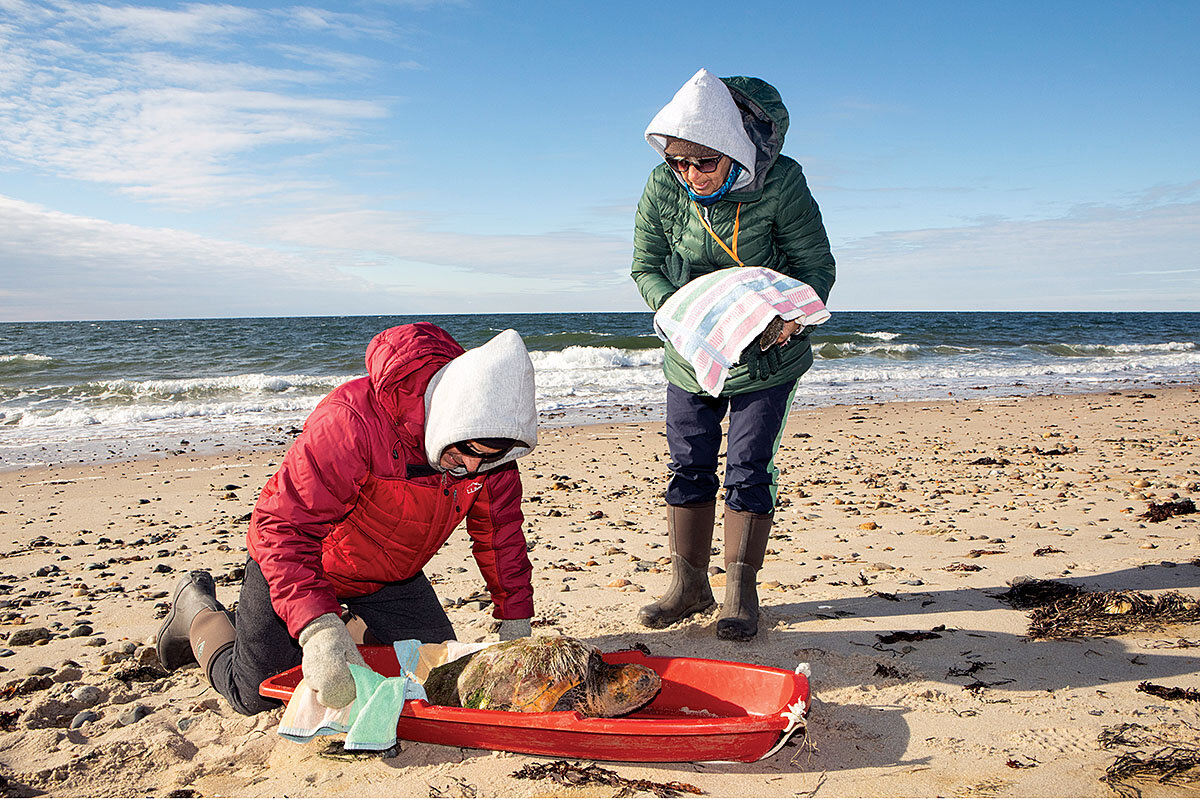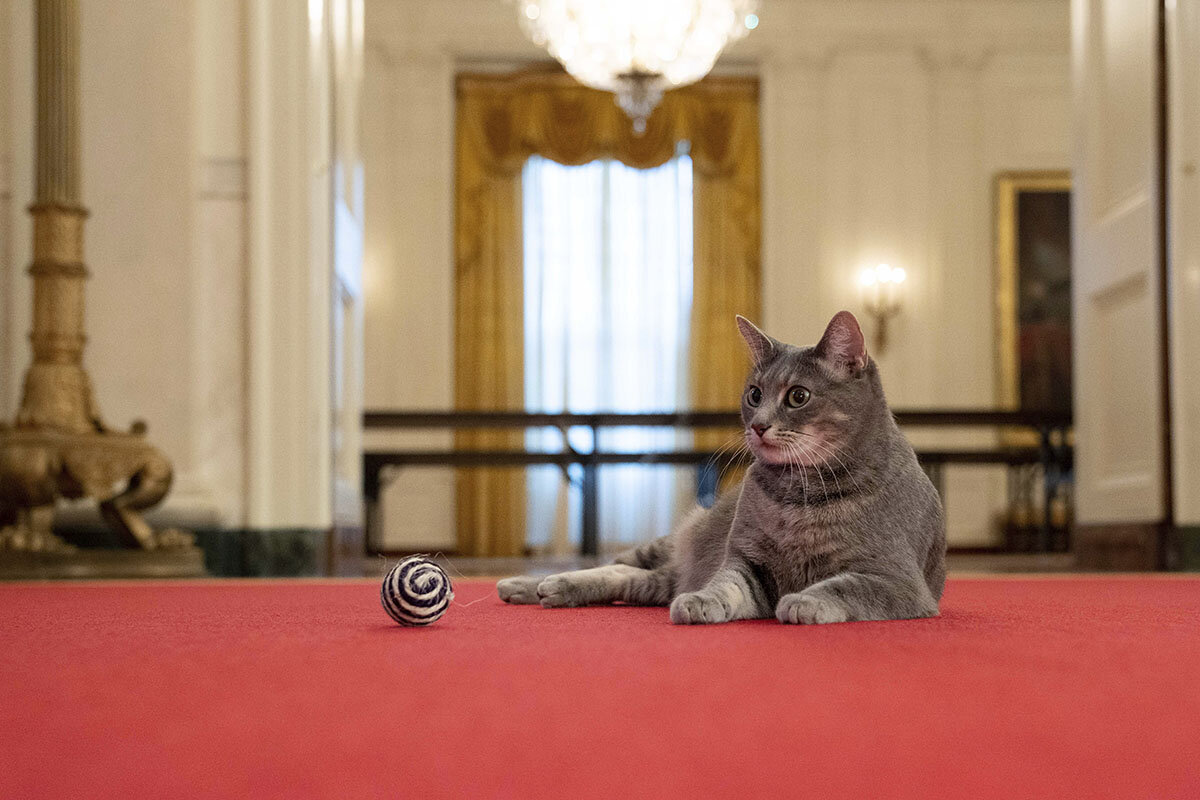Democracy or jobs? The Arab Spring was still flickering in Tunisia, but multiparty politics wasn’t creating solutions. Now youths are growing impatient with the populist strongman they embraced.
Monitor Daily Podcast
- Follow us:
- Apple Podcasts
- Spotify
- RSS Feed
- Download
 Linda Feldmann
Linda Feldmann
President Joe Biden loves ice cream, especially any flavor involving chocolate. “I don’t drink, I don’t smoke, but I eat a lot of ice cream,” he once famously said.
Thus, when we in Tuesday’s press pool got a heads-up that President Biden was going on an unannounced outing, we surmised it may involve a certain frozen treat. Which it did.
But business first: Upon arrival at Barracks Row on Capitol Hill, we all jammed into a little gift shop called Honey Made, where Mr. Biden chatted with the owner, bought a few things, and took questions from the pool on Russia and Ukraine. The visit’s purpose, we were told, was to highlight the growth in small business. It also reflected his pledge to get out more and talk to people.
Next up, a sidewalk chat with some Marines – then the gustatory highlight, a quick walk to Jeni’s Splendid Ice Creams. The pool was left outside, TV cameras pressed against the window to record the action. Soon Mr. Biden emerged, brandishing a double-dip cone – reportedly, salted peanut butter ice cream with chocolate flecks plus a scoop of blackout chocolate cake on a waffle cone.
Clearly, nothing is ever simple when you’re president. Critics asked, why is he going for ice cream with so many pressing matters on his plate? Why patronize an Ohio-based chain, when Washington, D.C., has its own excellent local brands?
And why ice cream in the middle of winter? On that, I can attest that Mr. Biden is not alone. Russians love to eat ice cream in winter. Perhaps, in a small way, it’s a bit of common ground with Vladimir Putin.











